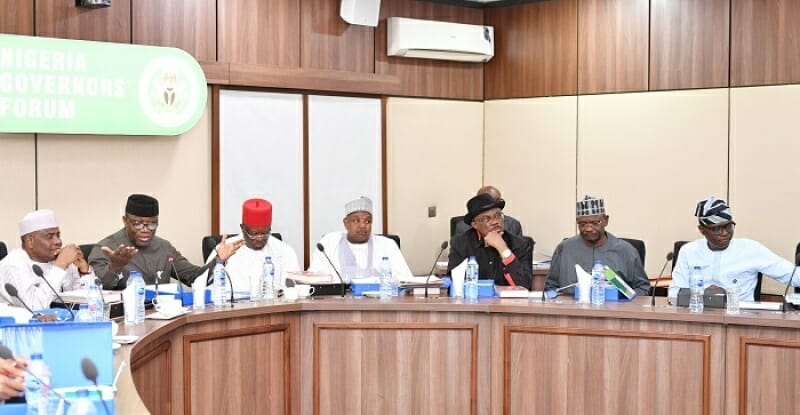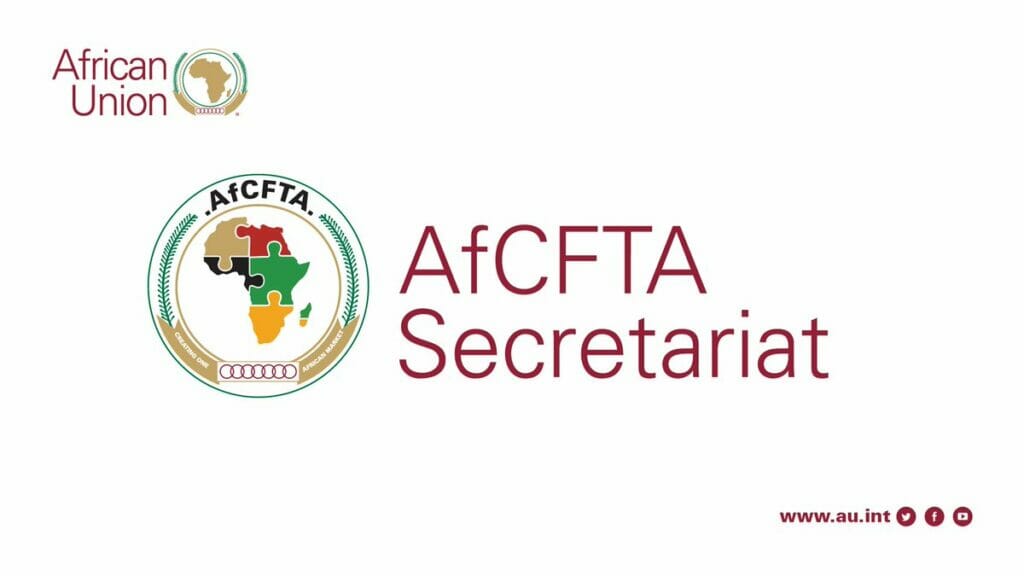AfCFTA, the African Continental Free Trade Agreement as a body of the National Action Committee has emphasised the need to bring down its activities to the subnational level so that governments can play a major role.
Mr. Francis Anatogu, the secretary of the committee, said this on Monday during a joint news conference with the Nigeria Governors’ Forum (NGF), in Abuja, on the AfCFTA Subnational Strategy Workshop scheduled to hold from Tuesday to Thursday in Abuja.

Mr. Anatogu said that for AfCFTA to be truly successful in Nigeria, there was a great need to work with states to find their niche in Africa’s export market.
“We cannot do this without improving the capacity of our people,’’ he said.
According to Mr. Anatogu, the first of the strategic goals in the implementation plan is to grow the export capacity of every state to the tune of $1.2 billion with a focus on products where there is a competitive advantage.
He pointed out that the subnational strategy workshop would serve as an intervention that would put the nation on course to make the AfCFTA goal a reality for Nigeria.
“Over the next three days, the NAC-AfCFTA will create a platform to engage and interact with State Technical Working Groups expected to be in attendance.
“This is with the goal of reaching an understanding of tailoring their economic and development plans to include the requirements of the AfCFTA.
“There is need to ensure that the groups are aware of the support available from the Federal Government and lay the foundation for a single vision and strategy between federal and state governments, to push the AfCFTA agenda in Nigeria.
“AfCFTA agreement, whose main objective is to promote export trade, deepen the economic integration of the continent, create a single market for goods and services with free movement of Africans and investments among member countries, came into effect on Jan. 1, 2021.
“This agreement seeks to eliminate 90 percent of tariffs and reduce non-tariff barriers to enhance intra-African trade and form the foundation of the establishment of a continental customs union, thereby creating the largest single market in the world.
“For Nigeria, the AfCFTA will re-energise our country’s aspirations for industrialisation and position Nigeria as the destination market for goods and services of the highest standards (finished or not) for the 1.2 billion consumers this agreement has brought to our doorstep.
“Traditionally, over 80 percent of imports in Africa are sourced from Europe, Asia, and the Americas.
“For us, with Nigeria being greatly blessed with both natural and human resources, the AfCFTA drive is about looking inwards to push outwards,’’ he said.
On his part, the Director-General of the NGF Secretariat, Mr. Asishana Okauru, said that after the workshop states should have an outline of what to do to make AfCFTA a reality in Nigeria.
Okauru said that the essence of carrying the AfCFTA agenda to the states could not be over-emphasised.
“We need to buy in by the states, local governments, and without trade, we cannot go far as a nation.
“There is significant buy-in by the governors too, and by the end of the workshop, what we would consider a successful event would be for each TWG (Technical Working Group), to go back with a mission to make their state an integral and initial link in a value chain.
“One that starts in their state and ends in another continent with the benefits leading to growths in internally generated revenue of the state.
“Development of a highly skilled workforce earning premium wages and developing a global state identity tied to a product or service,’’ Okauru said.
